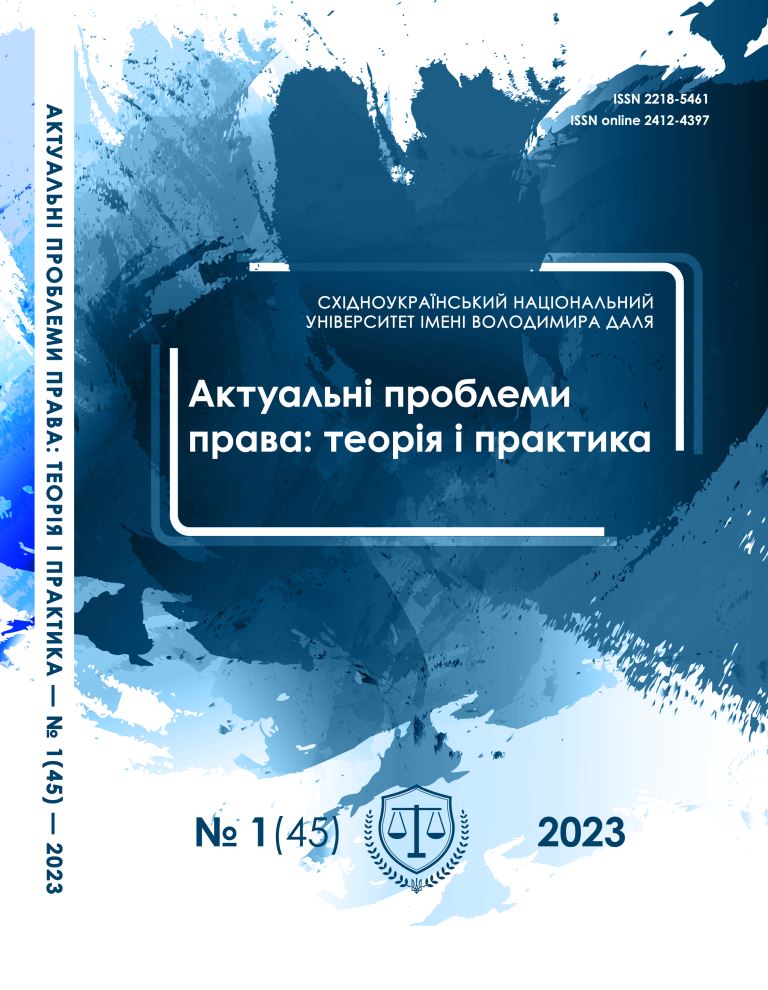ENSURING THE LEGAL STATUS OF CONDEMNED PRISONERS IN PENALTIES DURING THE STATE OF MARTIAL: PROBLEM ASPECTS
DOI:
https://doi.org/10.33216/2218-5461/2023-45-1-11-20Keywords:
legal status of convicts, deprivation of liberty, penal institutions, martial law, deportation, armed aggression, execution of punishments.Abstract
The article is devoted to the problematic aspects of ensuring the legal status of convicts while they are serving a prison sentence under martial law.
The scientific work carried out a systematic analysis of current national acts, positions of domestic scientists, aimed at researching the concept and scope of the legal status of the convicted person, as well as the problem of ensuring the basic rights and security of the convicted person before deprivation of liberty under martial law.
Based on the analysis of doctrinal approaches to understanding the concept of "legal status of convicts", the author made an attempt to formulate the concept and features of the legal status of convicts in a general form.
In the context of the restriction of freedom of movement and the vulnerable position of convicts to deprivation of liberty in wartime, the author pays special attention to the problems of observing the rights and safety of convicts in prisons as one of the components of their legal status.
The main international legal acts in the field of regulation of the legal status of those sentenced to deprivation of liberty are highlighted, including: Minimum Standard Rules for the Treatment of Prisoners of 1955, European Penitentiary (Prison) Rules of 1973, Code of Principles for the Protection of All Persons Subject to Detention or imprisonment in any form of 1988. Based on the analysis of the provisions of the Convention on the Protection of the Civilian Population during the War of 1949, the peculiarities of the legal status of those sentenced to deprivation of liberty who, after a full-scale invasion, are in penal institutions in the territories of hostilities or temporarily occupied territories, have been determined.
Based on the analysis of the current legislation, the mechanism of evacuation of convicts to deprivation of liberty from dangerous territories and the issue of safe stay of convicts on the territory of penal institutions during air threats are highlighted.
On the basis of these analytical reports, the main cases of violation of the rights of those sentenced to imprisonment, who for objective reasons are in the temporarily occupied territories, were analyzed, including: inhumane treatment, humiliation of human dignity, illegal phasing, forced recruitment into Russian private military formations, etc.

